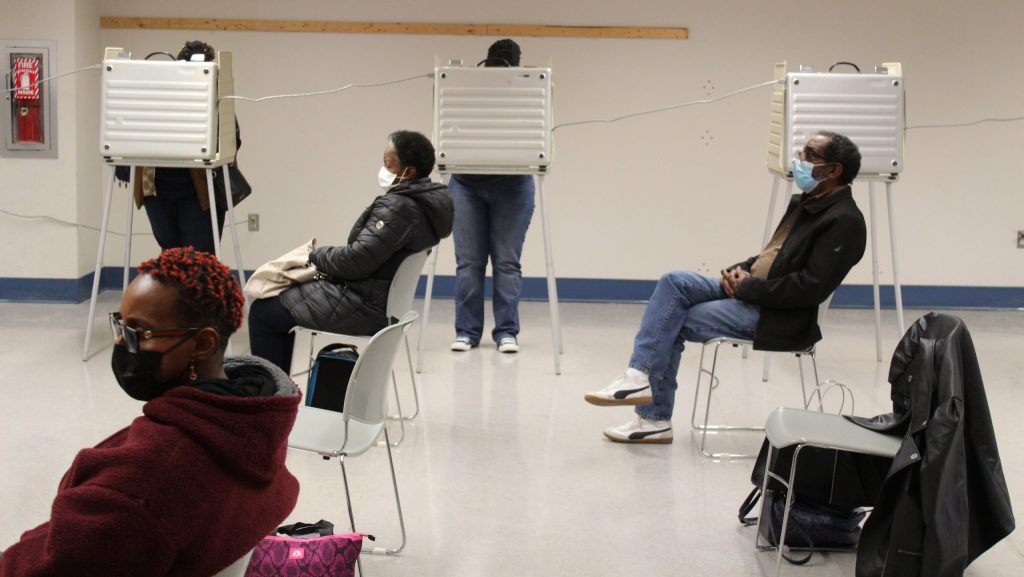Created Equal: How early voting affects voter turnout and election distrust
Sasha Bacon October 31, 2024David Becker of the Center for Election Innovation & Research and political science professor Dale Thomson joined the show to discuss how early voting improves election integrity, despite misinformation saying otherwise.

Voters casting their absentee ballots in person at a satellite voting center in Detroit.
Michigan is among 47 states in the U.S. that have early in-person voting this presidential election.
More than 500,000 people have voted early and in-person since it began statewide on Saturday, and more than two million votes have been cast across the state when including absentee ballots.
However, this increase in voting access is seemingly connected to a rise in mistrust of election integrity and claims of fraud.
To discuss this phenomenon, Created Equal host Stephen Henderson was joined on Wednesday by David Becker, executive director of the Center for Election Innovation & Research, and political science professor Dale Thomson.
Subscribe to Created Equal on Apple Podcasts, Spotify, Google Podcasts, NPR.org or wherever you get your podcasts.
Becker explained that although we do not have much data on the effect of early voting access on voter turnout, early voting improves election integrity by mitigating the effects of family emergencies, technical difficulties, dangerous weather, and disinformation. He also described how some voters perceive the inclusion of more people in democracy to be inherently fraudulent and insecure, especially as they are exposed to a lot of negative rhetoric about election security.
Thomson explained that although there is no evidence of widespread election fraud in recent years, the Trump campaign is using claims of election fraud to cast doubt on election results. He also discussed how immigrants are often targeted with claims of election fraud, even though there’s very little quantitative evidence that non-citizens are committing fraud on a wide-scale.
“A study conducted by the [Brennan] Center for Justice analyzing almost 24 million votes across 42 jurisdictions in the 2016 general election concluded there were approximately 30 instances of non-citizens voting. So there’s data out there,” Thomson said.
Use the media player above to hear the full conversation.
Guests:
- David Becker is the executive director for the Center for Election Innovation & Research. He’s also the author of “The Big Truth” and host of the podcast The Count.
- Dale Thomson is a professor of political science at University of Michigan – Dearborn. He is also the director of the Ottawa Internship Program.
Listen to Created Equal with host Stephen Henderson weekdays from 9-10 a.m. ET on 101.9 WDET and streaming on-demand.
Trusted, accurate, up-to-date.
WDET strives to make our journalism accessible to everyone. As a public media institution, we maintain our journalistic integrity through independent support from readers like you. If you value WDET as your source of news, music and conversation, please make a gift today.
